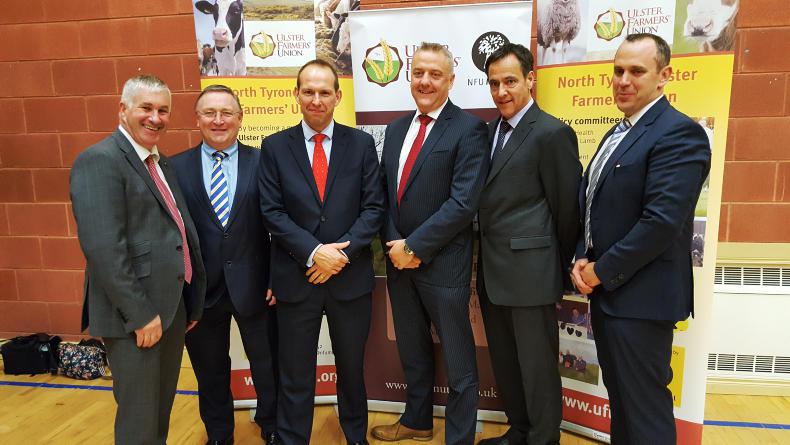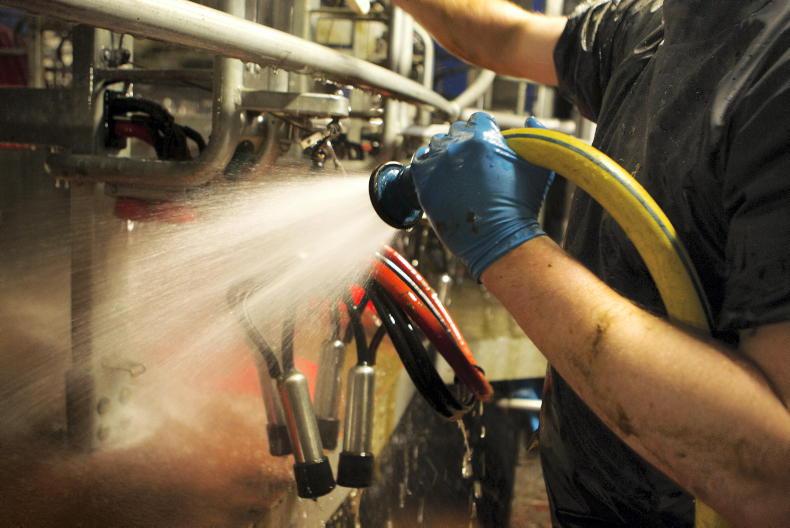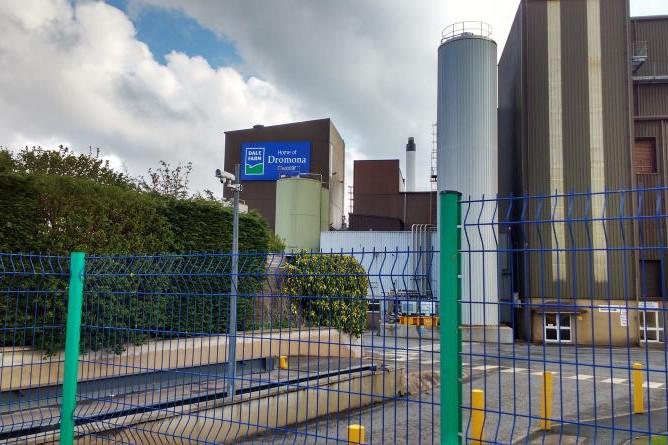Any changes to the milk pricing system in NI to be based on milk solids rather than litres produced will require an approach by the entire dairy industry in NI and not any individual processor, Dale Farm chief executive Nick Whelan has said.
At an Ulster Farmers’ Union (UFU) meeting in Newtownstewart, Whelan noted that a range of milk production systems in NI means that an A + B – C system would be favourable for some farmers but not others.
“If we had a range of systems from different processors, each system would then disadvantage some and advantage others. You could lose a lot of farmers and gain a lot of farmers and we don’t want that sort of volatility in the milk pool,” he said.
Whelan acknowledged that from a processing perspective, the more solids a processor gets the more efficient they can be.
“But that sort of system doesn’t suit all our members. A number of members are heavily reliant on Holstein Friesians and are going for volume, and that’s the system they have built their business on,” he added.
When questioned about milk prices, the new Dale Farm chief said that the business has to commit to volumes and prices for products set in contracts with customers.
“In a rising marketplace, one of our biggest challenges at the moment is aggressively getting our contract prices up in line with spot. We also have to remember that those contracts are very protected when markets are going down,” he said.
Asked about Dale Farm making profit while most farmers produce at a loss, Whelan said that the business has invested £40m in the last three years in processing facilities and has a commitment to make repayments to banking partners.
“This is fully the business of our members. Everything we can do to alleviate as fast as possible the genuine suffering due to milk price, we will give back in milk price,” he said.
New Moy Park producers in the wings
Speaking at the UFU meeting on Tuesday evening, Moy Park’s general broiler manager Tom McKeown said that the company has 60 farmers on its books waiting to supply more broilers in NI.
“Before we allow anyone to expand, we will make sure that we have the sales to justify their incomes and let them make repayments,” he said.
Half of these farmers are existing suppliers seeking to expand and half will be new entrants to the poultry sector. This would increase broiler processing from 2.5m birds per week in NI to close to 2.7m.
With Moy Park’s Dungannon processing plant operating at full capacity, but the Ballymena facility in need of refurbishment, that could be another factor in the decision to expand. When asked should Moy Park’s vertically integrated model be applied to other sectors, McKeown said that broiler production has a shorter turnaround period to match customer demand than beef production.
However, he said that contracts allow good relationships to be built in the supply chain. “They allow profit to be delivered to everyone in the chain that is performing. In our system, retailers demand a constant supply of the same product. They tell us the standards required and we pass that on to the producer,” he said.
Brexit positives and negatives
The panel of leading figures from the NI agri-food industry that spoke at the UFU meeting in Newtownstewart all acknowledged that the impact of Brexit so far has been beneficial for the industry, with weakening of sterling making exports more competitive and boosting subsidy payments.
In the medium to longer term, all speakers said that there were a range of “unknowns” for the industry – some negative and some positive. Dale Farm chief Nick Whelan said the loss of subsidy payments to farmers was the biggest threat to farmers in the longer term, although Fane Valley chief Trevor Lockhart said that leaving the EU could mean that we are able to better influence UK regulations and agricultural policy.
He also raised concerns that political influences could override rational arguments in withdrawal negotiations between the remaining EU member states and the UK.









SHARING OPTIONS